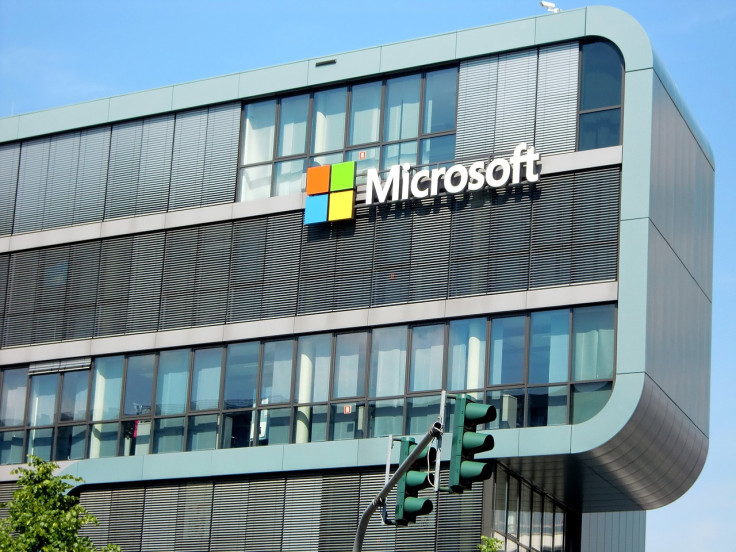Microsoft could be secretly working on own AI chip, here's everything you need to know
Microsoft's purported artificial intelligence chip could power OpenAI's ChatGPT.

Microsoft is reportedly working on its in-house custom AI processors to minimise its dependency on other chip makers. To those unaware, Microsoft invested $1 billion in OpenAI, the company behind the widely popular ChatGPT, back in 2019. Artificial intelligence attracted mega-valuations at the time. However, the market looks very different three years later.
Still, the American tech giant continued investing billions of dollars and extended its partnership with the artificial intelligence company. Much to Microsoft's delight, its investment paid off in the form of the rousing success of the new Bing with ChatGPT. In fact, Samsung is reportedly considering replacing Google with Microsoft Bing as the default search engine on its Galaxy devices.
Now, Microsoft is reportedly gearing up to take its AI game to a whole new level. If things go as planned, the company could gain a major advantage in the AI space. According to a report by The Information, the company is discreetly working on a new project. This undertaking is referred to as Project Athena.
Microsoft could gain a massive advantage in the AI space
The American technology company is reportedly developing a first-party chip capable of powering the supercomputers that train AI. The chip is expected to be ready for mass production next year. Currently, Microsoft is lagging behind fellow mega-corps like Meta, Alphabet, and Amazon on this front. The aforesaid tech giants have their own first-party chips, while Microsoft has been relying on Nvidia to develop its AI chip.
However, this isn't a bad thing, given that Nvidia has more than 15 years of experience when it comes to making AI chips. Moreover, the software company is at the forefront of AI chip manufacturing. Manufacturing chips in-house is a pretty expensive process. Project Athena will reportedly cost around a whopping $100 million a year.
Microsoft has been secretly working on an artificial intelligence chip, code-named Athena, since 2019.
— Ben Tossell (@bentossell) April 18, 2023
The chip is designed for training large-language models (LLMs) like ChatGPT and could help alleviate the shortage of specialized computers needed for AI processing.
The…
So, only a company as large as Microsoft and its top competitors can afford to manufacture chips in-house. According to research firm SemiAnalysis, the long-term savings could be huge. "Athena, if competitive, could reduce the cost per chip by a third when compared with Nvidia's offerings," SemiAnalysis told The Information. Operating ChatGPT reportedly costs around $700,000 per day, while SemiAnalysis claims it costs around $0.36 per prompt.
How is Project Athena likely to help Microsoft?
It is safe to assume that Athena could help Microsoft save more than $84 million in operating costs. On top of that, Athena could provide a few performance upgrades. However, there's no timeline for these performance upgrades. Notably, Microsoft seems more focused on cost-saving rather than outperforming Nvidia. In fact, The Information suggests Microsoft doesn't consider Athena as a replacement for Nvidia's AI chips.
It is also worth mentioning here that Microsoft and Nvidia recently had a multiyear collaboration to develop a new generation supercomputer. Furthermore, Athena could adopt a 5nm (nanometer) process, although it is slightly older technology compared to the highest-end Nvidia chips. This is another major sign that Athena isn't likely to outperform an Nvidia AI chip.
Yet, this could turn out to be a win for consumers. If Microsoft ends up developing its own AI chip to supplement the Nvidia AI chips, it could significantly upgrade the capacity of its supercomputer. Increased capacity coupled with lowered operating costs could make AI more accessible for everyone. Also, Microsoft is reportedly prepping to bring AI integration to its upcoming Windows 12 OS.
A Bloomberg report in 2020 claimed Microsoft is secretly working on its own custom ARM-based chips for servers. It is unclear whether this is linked to Athena at all. The company currently has its own Arm-based SQ series chips for Surface devices, which it developed in collaboration with Qualcomm. Aside from this, it developed custom Ryzen CPUs for the Surface Laptop series alongside AMD. In other words, Microsoft is no stranger to developing chipsets.
© Copyright IBTimes 2025. All rights reserved.






















